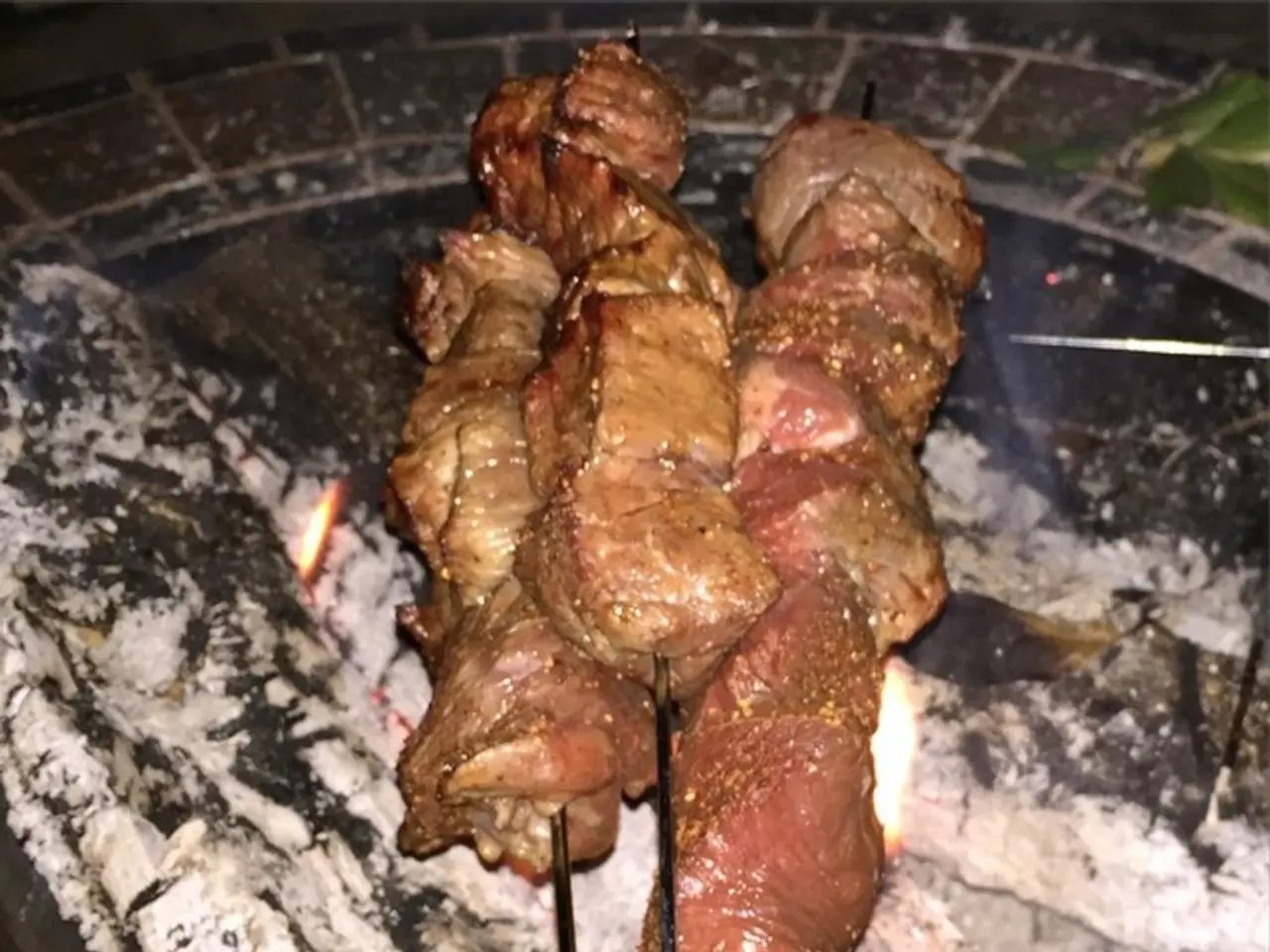Cancer Risk Influenced by Food Choices
In the ongoing battle against cancer, nutrition plays a crucial role in treatment and coping. Recent studies have shed light on various foods that may help reduce the risk of cancer or even slow down its progression.
One such diet gaining attention is the ketogenic diet. Research suggests that it may potentially reduce cancerous tumor growth and improve survival rates, as demonstrated in both animal and test-tube studies.
Certain spices, such as cinnamon, are also being explored for their anti-cancer properties. Preliminary research indicates that cinnamon may prevent cancer cells from spreading.
Nuts, a popular snack, are linked to a lower risk of certain types of cancer. Regularly incorporating them into your diet could be beneficial.
Flaxseeds, rich in omega-3 fatty acids, have been associated with protective effects against certain cancers and may help reduce the spread of cancer cells.
Garlic, known for its pungent flavour, contains allicin, which has shown cancer-fighting properties in test-tube studies.
On the other hand, high consumption of processed meat, like hot dogs, ham, bacon, and chorizo, may increase the risk of colorectal cancer. Conversely, consuming certain dairy products may reduce this risk.
Certain foods, such as high sugar and refined carbohydrate foods, have been linked to an increased risk of several types of cancer. Eating fresh fish, rich in healthy fats, can help protect against cancer, possibly due to these fats' ability to reduce inflammation.
A holistic dietary approach, rich in vegetables, fruits, and other nutritious foods, may reduce the risk of cancer by up to 70%. This is backed by studies from Loma Linda University and Inner Mongolia University, which have found connections between vegetarian diets and a reduced risk of several cancers.
Olive oil consumption is linked to a reduced risk of cancer, possibly due to its monounsaturated fats. Achieving a healthy weight can also help protect against cancer development.
Beans and legumes, such as lentils and chickpeas, may protect against colorectal cancer. Curcumin, present in turmeric, is another potential cancer fighter. However, high dairy consumption has been linked to an increased risk of prostate cancer.
Certain foods, like vegetables and fruits, contain cancer-fighting antioxidants and phytochemicals. Being obese is one of the biggest risk factors for 13 different types of cancer, including esophageal, colon, pancreatic, and kidney cancer, as well as breast cancer after menopause.
In conclusion, adopting a balanced diet rich in fruits, vegetables, nuts, and other nutritious foods can potentially help reduce the risk of cancer. However, more research is needed to fully understand the intricate relationship between diet and cancer. Always consult with a healthcare professional for personalized advice.
Read also:
- Conventional Medicine's Domain Shrinks as Complementary and Alternative Therapies Gain Popularity
- Restoring SCN2A gene function in mice through CRISPR activation enhances neurodevelopmental outcomes.
- New York joins a multistate health coalition to counteract chaos in federal vaccine distribution efforts
- Enhanced Iron Absorption in Female Health: Biotechnology Developed Plant Protein Outperforms Iron Supplements in Fermentation







